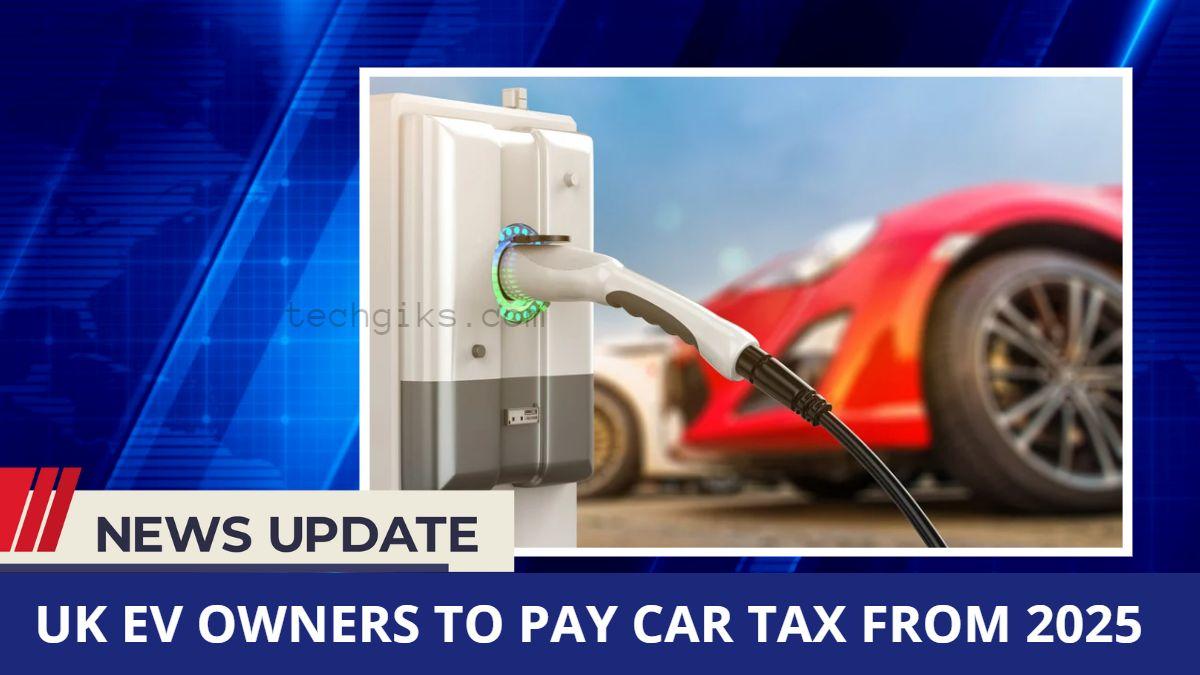UK EV owners to pay car tax from 2025
UK EV owners to pay car tax from 2025 – The UK government intends to phase out the sale of new petrol and diesel cars by the end of this decade, with some hybrid vehicles still allowed until 2035, resulting in electric vehicles paying car tax. As announced by Chancellor Jeremy Hunt on Thursday, battery-powered vehicles will no longer be exempt from vehicle excise duty, or car tax, in April 2025. Due to the decision, one of the remaining tax advantages associated with owning a zero-emission vehicle has been removed because zero-emission cars are still more expensive than traditional combustion engine vehicles.
Despite market volatility brought on by the epidemic, the global market share of electric vehicles increased to 43% in 2020. According to the International Energy Forum, plug-in hybrid vehicles comprised 31% of sales in 2020, with all-electric cars accounting for nearly 69%. Plug-in models and light vehicles sales in the UK rank third in Europe by volume. As the 2030 deadline for the ban on new sales of internal combustion engines approaches, demand is only anticipated to rise.
Car Tax from 2025
It was decided earlier this year to discontinue the plug-in car grant, which initially offered motorists up to £5,000 in savings on purchasing a new electric vehicle. However, a wide range of tax benefits will remain available for electric vehicles under company car schemes. At the same time, drivers can also avoid paying fuel duty, a tax on motor vehicles.

Hunt explained that the measure was meant to make the motoring tax system fairer. Still, green lobby groups argued that the move would decrease the affordability of battery cars, especially second-hand cars. It is predicted that there will be about 2 million electric cars on UK roads by the middle of the decade, and the removal of the exemption is expected to raise £515 million in 2025, £985 million in 2026, and £1.6 billion in 2027. Furthermore, as more motorists switch to electric vehicles and combustion engines become more efficient, tax revenues from fuel duty are expected to decline further.
From April 2025, new electric cars will pay a lower rate for the first year, then a standard rate for the next two years – currently £165. Exemptions will also be removed from older electric cars registered after 2017. In addition, vehicles with a list price greater than £40,000 will require car tax and the luxury car supplement. Currently, owners of more expensive petrol or diesel cars must pay an additional amount of £355 annually, totalling $520, between years two and six. Although the price of electric vehicles is expected to decrease as battery costs decline, most are currently priced over £40,000.
Many driving associations view a distance-based road pricing scheme as the best possible substitute, although it has long been regarded as politically unpalatable. The number of battery-electric vehicles (EVs) on UK roads is rising, so the government will get less money from fuel duty and VED. New petrol and diesel vehicle sales will be banned in the UK starting in 2030.
All zero-emission cars are now free from VED. However, rates vary significantly based on emissions and the age of the vehicle. EVs will first be assessed in the lowest band for new cars, which is presently £10, and later be evaluated at the same rate as regular vehicles. Modern diesel or petrol automobile owners generally spend between £120 and £945 in the first year, followed by £165 each year for the next five years. New EVs may be affected by surcharges on more costly vehicles.
According to Ralph Palmer of the lobbying group Transport & Environment, penalising electric vehicles is “just plain wrong.”. In addition to EV drivers’ contribution to infrastructure and maintenance via taxes, he suggested a broader shift that would more effectively tax polluting cars, particularly at the point of purchase.
Finally, hope you learned something from the news article “UK EV owners to pay car tax from 2025”. Also, please check out “Historical crisis of health workers in England“.
Additionally, you may wish to check out UK University College for higher education abroad.

